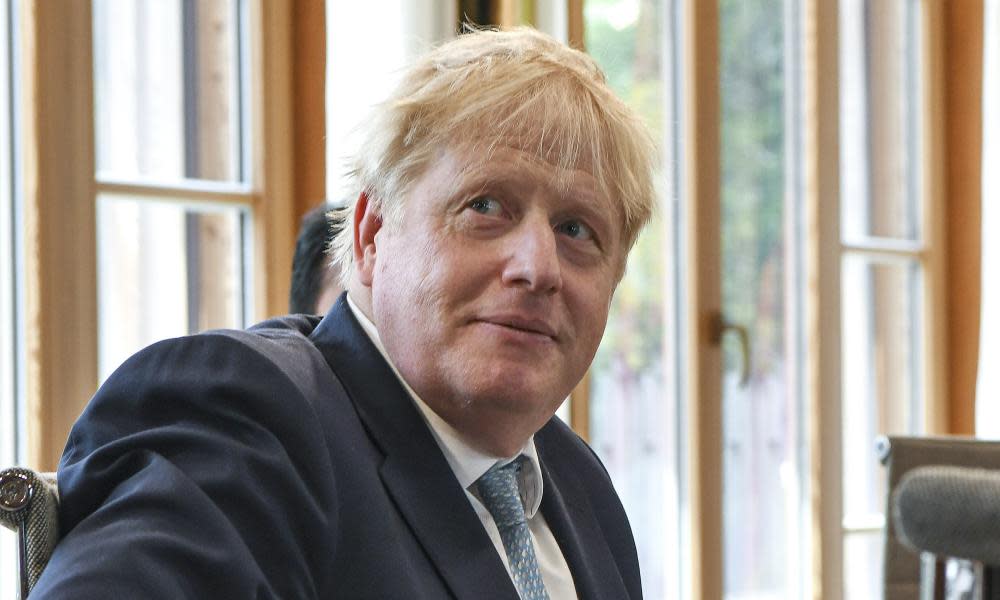Steel tariffs to be extended despite WTO rules, Boris Johnson indicates

Boris Johnson has indicated he plans to retain and extend steel tariffs despite claims that this might put Britain in breach of World Trade Organization rules.
Speaking at the G7 summit in Germany, the prime minister said he wanted to protect the British steel industry and the proposed protectionist measures would be in line with what other European countries were doing.
The issue recently became linked to the controversy about Johnson’s ethical standards when Lord Geidt cited the proposed tariff policy in his letter announcing his resignation as the PM’s independent adviser on ministerial standards.
In what was understood to be a reference to being asked to approve a tariff policy that would go against international legal obligations, Geidt said he had been put in an “impossible and odious position” and that, because he was being asked to sanction a breach of the ministerial code, he would have to quit.
Why Geidt was asked to give advice on WTO tariff policy – which has not previously been a matter for a No 10 ethics adviser – has never been fully explained.
Related: Boris Johnson v ethics adviser: what is row over steel tariffs about?
Responding to reports that the government is to extend tariffs already imposed on steel imports from China, supplemented with further tariffs affecting imports from countries such as India and Turkey, Johnson said: “It’s very important people understand the context of this, and that is that the UK steel industry has been going through a difficult time, partly because of energy prices.
“We have a system in the UK where we don’t privilege our industry in the way that some other countries do.
“We need British Steel to be provided with much cheaper energy and cheap electricity for its blastfurnaces but until we can fix that, I think it is reasonable for UK steel to have the same protections that absolutely every other European steel economy does.”
Johnson said there would be “tough choices” over what action to take. “The difficulty is, is that [helping the industry] possible to do while staying within our World Trade Organization obligations? That’s the problem,” he said.
While Geidt appeared to question the tariff proposal on legal grounds, some of Johnson’s ministerial colleagues are reportedly more worried about the policy undermining free market principles.
The prime minister’s spokesperson on Sunday stressed that no final decision has yet been taken.
“We’re consulting with foreign counterparts on our proposals before making a final decision ahead of the deadline. That will be made shortly and will balance our international obligations and the national interest,” the spokesperson said.
They said the collapse of the steel industry would have “wider knock-on impacts for UK capability and security”.
The shadow foreign secretary, David Lammy, told the BBC’s Sunday Morning programme that, as he understood it, the government was planning to extend protections for domestic steel that were also in place in the US and the EU and that Labour was in favour of this too.

 Yahoo News
Yahoo News 
